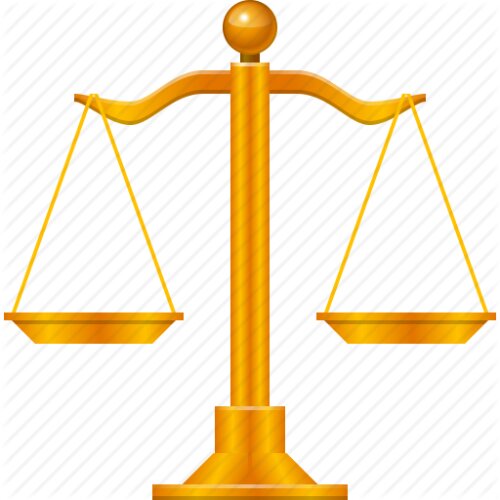Best Antitrust Litigation Lawyers in Bermuda
Share your needs with us, get contacted by law firms.
Free. Takes 2 min.
Or refine your search by selecting a city:
List of the best lawyers in Bermuda
About Antitrust Litigation Law in Bermuda
Antitrust litigation in Bermuda refers to the legal processes involved in enforcing and defending against claims of anti-competitive conduct, such as monopolies, cartels, abuse of market dominance, and unfair business practices. Bermuda's economy is globally engaged and competitive, making it essential for businesses and individuals to understand the importance of maintaining fair competition. The jurisdiction regulates market practices to protect consumers and ensure a level playing field in both domestic and international markets. Antitrust litigation typically arises when entities challenge or defend alleged violations of competition laws, often requiring intricate knowledge of local statutes and global best practices.
Why You May Need a Lawyer
Engaging a lawyer is crucial in antitrust litigation for several reasons. Common situations where legal assistance is needed include:
- Allegations of price-fixing or collusion between competitors
- Investigations or enforcement actions by Bermuda's regulatory authorities
- Claims of market abuse or predatory pricing practices
- Mergers and acquisitions that may raise competitive concerns
- Dealing with contractual clauses that may restrain trade or competition
- Defending against accusations of abuse of market dominance
- Seeking damages for harm caused by anti-competitive conduct
Local Laws Overview
Bermuda’s approach to antitrust and competition law is governed primarily by the Competition Act 2015 and overseen by the Bermuda Regulatory Authority. Key aspects of local laws that pertain to antitrust litigation include:
- Prohibition of Anti-Competitive Agreements: Agreements between businesses that have the object or effect of preventing, restricting, or distorting competition are strictly forbidden.
- Abuse of Market Power: Companies with significant market dominance must not misuse their position to the detriment of competitors or consumers.
- Merger Control Regime: Certain mergers and acquisitions must be notified to the Regulatory Authority for review, ensuring they do not substantially lessen competition.
- Investigative Powers: The Authority has broad rights to investigate, request documents, and enter premises if necessary to enforce compliance.
- Sanctions and Remedies: Breaches can result in significant fines, court orders restraining anti-competitive conduct, and civil claims for damages.
Frequently Asked Questions
What types of business practices are considered anti-competitive in Bermuda?
Practices such as price-fixing, market sharing, bid rigging, and abuse of market dominance are considered anti-competitive under Bermuda law and can lead to serious legal consequences.
Who enforces antitrust laws in Bermuda?
The Bermuda Regulatory Authority is the main body responsible for enforcing competition and antitrust laws, including conducting investigations and prosecuting violations.
What penalties can result from a breach of antitrust laws?
Penalties may include substantial fines, orders to cease certain practices, and liability for damages to affected parties. Reputational harm and business restrictions may also result.
Do mergers or acquisitions need pre-approval in Bermuda?
Certain mergers or acquisitions that could impact competition may require notification and approval from the Regulatory Authority before completion.
Can individuals, as well as companies, be held liable for anti-competitive conduct?
Yes, both companies and responsible individuals can be held liable, depending on their involvement in the anti-competitive activity.
Is it possible to appeal a decision made by the Regulatory Authority?
Decisions by the Regulatory Authority can be appealed to the Supreme Court of Bermuda, often with legal assistance.
How long do antitrust investigations typically take?
Timelines vary depending on the complexity of the case. Investigations may take several months or longer, particularly if cross-border elements are present.
Are there defenses available if accused of anti-competitive conduct?
Various legal defenses may be available, such as demonstrating that the conduct did not restrict competition or was justified on efficiency grounds. A lawyer can assess the best strategy.
What should I do if my business is being investigated for an antitrust violation?
You should seek legal advice immediately to understand your rights and obligations, protect your interests, and respond appropriately to enquiries from the authorities.
Can I claim compensation if my business has been harmed by anti-competitive practices?
Yes, affected businesses or consumers can seek damages through civil litigation if they have suffered loss due to another party’s anti-competitive behavior.
Additional Resources
For further information and support related to antitrust litigation in Bermuda, consider the following resources:
- Bermuda Regulatory Authority: The primary agency for competition enforcement and guidance.
- Bermudian law firms with competition law expertise: Many local law firms have lawyers specializing in antitrust and competition matters.
- Bermuda Bar Association: Offers a directory of qualified attorneys in Bermuda.
- Chamber of Commerce: Provides support and advocacy for local businesses and can guide compliance concerns.
- Government of Bermuda - Ministry of Legal Affairs: Offers statutory information and legislative updates.
Next Steps
If you need legal assistance in antitrust litigation:
- Gather all relevant documentation, such as contracts, correspondence, and regulatory notices.
- Contact a Bermuda-based lawyer who specializes in antitrust or competition law.
- Request an initial consultation to outline your situation and discuss possible strategies.
- Stay informed about any deadlines or requirements issued by the Regulatory Authority or courts.
- Follow your lawyer’s advice closely, particularly regarding communication with regulators or opposing parties.
- Consider alternative dispute resolution methods where appropriate, such as mediation or negotiation, to resolve issues out of court.
Lawzana helps you find the best lawyers and law firms in Bermuda through a curated and pre-screened list of qualified legal professionals. Our platform offers rankings and detailed profiles of attorneys and law firms, allowing you to compare based on practice areas, including Antitrust Litigation, experience, and client feedback.
Each profile includes a description of the firm's areas of practice, client reviews, team members and partners, year of establishment, spoken languages, office locations, contact information, social media presence, and any published articles or resources. Most firms on our platform speak English and are experienced in both local and international legal matters.
Get a quote from top-rated law firms in Bermuda — quickly, securely, and without unnecessary hassle.
Disclaimer:
The information provided on this page is for general informational purposes only and does not constitute legal advice. While we strive to ensure the accuracy and relevance of the content, legal information may change over time, and interpretations of the law can vary. You should always consult with a qualified legal professional for advice specific to your situation.
We disclaim all liability for actions taken or not taken based on the content of this page. If you believe any information is incorrect or outdated, please contact us, and we will review and update it where appropriate.
Browse antitrust litigation law firms by city in Bermuda
Refine your search by selecting a city.

















